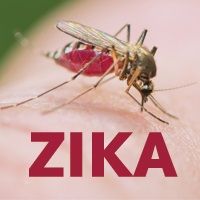Article
Zika Clinic Opens in NY
Author(s):
North Shore University Hospital in Manhasset, NY is holding a weekly clinic for pregnant women who want to be tested for Zika.

Concern about Zika virus exposure is so high among pregnant women in its Long Island, NY service area that North Shore University Hospital in Manhasset has opened a Zika pregnancy clinic. It will be open one day a week.
There women who are concerned they may have been exposed to the virus can get consultations and, if necessary, testing.
In annoucing the clinic, which opened today, the hospital said its obstetricians have been getting about 10 phone calls a week from women who are concerned about Zika and the likelihood that it causes microcephaly in newborns and other problems.
Women who have traveled to areas where the virus is endemic, and their sex partners who have traveled to such regions, are at risk.
“When you have something like Zika that comes out of nowhere and there’s so much fear and demand for answers in the community, it’s better to concentrate the efforts in a coherent program,” explained Burton Rochelson, MD, chief of maternal fetal medicine at the hospital's corporate parent, Northwell Health system. He is also director of obstetrics at the hospital.
“We felt that we’d be able to meet that demand this way. It’s a needed service for both pregnant moms, who are understandably anxious, and for their physicians.”
Zika tests are time-consuming for physicians and.
The test involves two blood draws, one to check for viral particles in the mother’s blood and the other for antibodies to see if the patient was exposed to the virus. The clinic will send blood samples will be sent to New York State's Wadsworth Arbovirus Laboratory in Albany for processing. Results for the first blood test take about 24 hours, but results on exposure can take up to two weeks.
The clinic will also do an ultrasound for women who test positive for the virus to check for calcium deposits in the fetal brain and liver, which has been linked to Zika infection. When appropriate, arrangements will be made for serial ultrasounds to evaluate fetal head size for the unlikely development of microcephaly.




